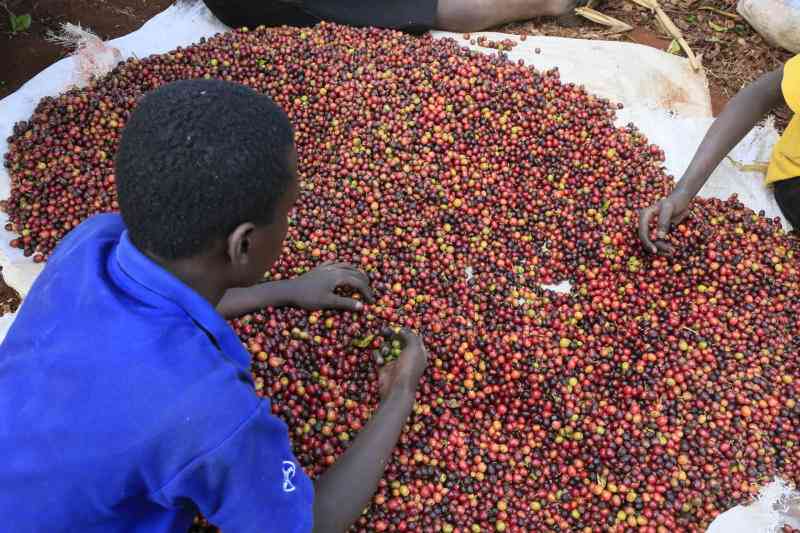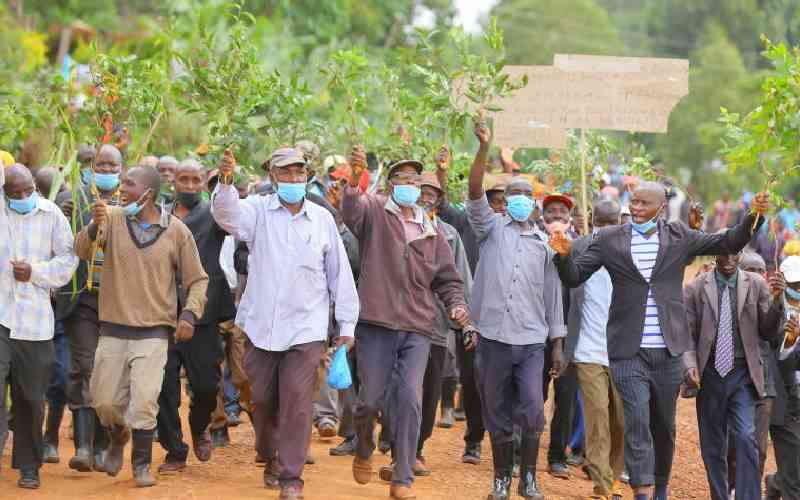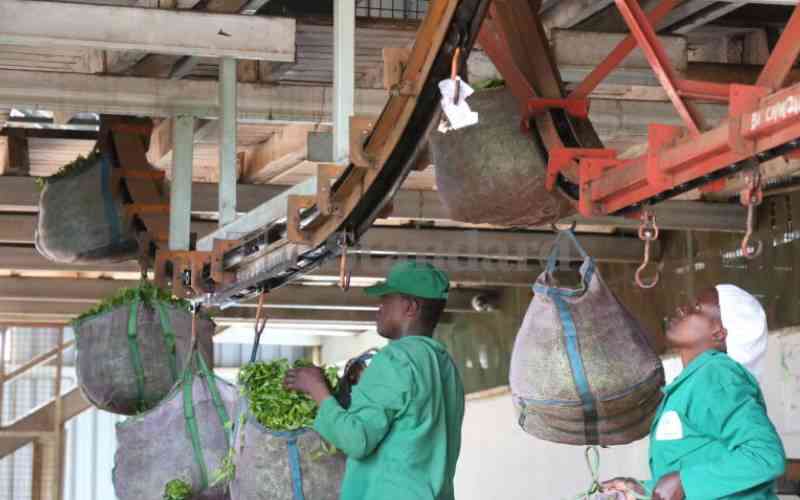NAIROBI, KENYA: The mention of coffee in some parts of the country sends shivers down the spines of farmers due to the rampant theft of berries. This vice has seen coffee farmers in central Kenya, where the crop is grown on a large scale, abandon it for real estate to avoid chalking up losses.
But farmers in the South Rift have begun to warm up to it. Farmers reeling from dwindling tea earnings and a loss of harvest after widespread maize lethal necrosis disease attacks are slowly turning to coffee.
“My maize store is empty, not because we sold our maize produce but because the maize disease brought down all our crops, leaving us with nothing. I had to find an alternative crop that can cushion me from hunger and meet my family’s financial needs,” said Mr David Kirui at the Bomet Agricultural Training Centre during a recent workshop for coffee farmers. About 80 per cent of the maize crop in Bomet County was destroyed by maize necrosis.
Mr Kirui said he is trying his hand in coffee to recover from the losses he has suffered the last two planting seasons.
“The Government called on farmers in the areas affected by the maize disease to embrace alternative farming activities to counter its spread, and I chose to return to coffee farming as it does well in my home area.”
With large tracts of land in central Kenya being surrendered to property development due to the region’s proximity to a densely populated Nairobi, the South Rift region has been cited by experts as the country’s next likely coffee frontier.
But as more farmers turn to the crop, brokers from across the country have started trooping to the region to buy berries. This has put county co-operatives on high alert, and programmes are being implemented to prevent farmers being duped into selling their produce at throwaway prices.
Take advantage
“We have noticed the arrival of some individuals who are buying coffee from farmers at very low prices and we have launched sensitisation programmes so that our farmers do not fall prey to these brokers,” said Bomet County Director of Co-operatives Philip Cheruiyot.
Mr Cheruiyot said the county is eyeing coffee as a revenue-enhancing cash crop and would not allow middlemen to take advantage of farmers.
“We are planning to set up a warehouse at a central point to collect coffee from all the farmers before it is dispatched to the market,” he said during the Bomet workshop.
He also encouraged farmers to join groups to access financial support from the county government, which has since March grouped farmers into 17 co-operative societies.
“When we set out to identify the hurdles coffee farmers were facing, we discovered that marketing was their biggest challenge, but we also realised it was because everyone was trying to sell his or her produce individually, which saw companies take time to pay them,” said Cheruiyot.
“Companies cannot buy coffee in low quantities, therefore, it took them time to collect coffee from local farmers before they could deliver it to factories for processing and then pay the farmers.”
Bomet Deputy Governor Stephen Mutai said the county government would also buy hand pulpers, which are used to remove the pulp from coffee berries to help with the processing process, and issue them to the 17 coffee societies.
Stay informed. Subscribe to our newsletter
He added that the county was in talks with the Coffee Research Foundation to secure high-quality coffee seedlings at subsidised rates.
[email protected]
 The Standard Group Plc is a
multi-media organization with investments in media platforms spanning newspaper
print operations, television, radio broadcasting, digital and online services. The
Standard Group is recognized as a leading multi-media house in Kenya with a key
influence in matters of national and international interest.
The Standard Group Plc is a
multi-media organization with investments in media platforms spanning newspaper
print operations, television, radio broadcasting, digital and online services. The
Standard Group is recognized as a leading multi-media house in Kenya with a key
influence in matters of national and international interest.
 The Standard Group Plc is a
multi-media organization with investments in media platforms spanning newspaper
print operations, television, radio broadcasting, digital and online services. The
Standard Group is recognized as a leading multi-media house in Kenya with a key
influence in matters of national and international interest.
The Standard Group Plc is a
multi-media organization with investments in media platforms spanning newspaper
print operations, television, radio broadcasting, digital and online services. The
Standard Group is recognized as a leading multi-media house in Kenya with a key
influence in matters of national and international interest.








